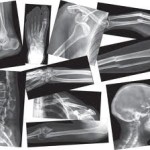By Mitchell Riese and Mitchel Wilson
 In Felkins v. City of Lakewood, the U.S District Court of Colorado addressed cross motions for summary judgment and granted defendant’s motion, thereby dismissing plaintiff’s case. The Court ruled that she did not establish that she was disabled.
In Felkins v. City of Lakewood, the U.S District Court of Colorado addressed cross motions for summary judgment and granted defendant’s motion, thereby dismissing plaintiff’s case. The Court ruled that she did not establish that she was disabled.
In 2008, Lakewood hired Cynthia Felkins as a police dispatcher. She had to serve a probationary period of one year. Felkins suffers from avascular necrosis, an illness that causes the death of bone tissue due to a lack of blood supply. In December 2008, Ms. Felkins’ femur broke and she required surgery. When she returned to work in January 2009, Ms. Felkins told her supervisor that she was still experiencing pain. The City agreed that she should return to work gradually and build up to a full ten hour shift. Felkins requested and received a temporary schedule change to accommodate physical therapy sessions. She subsequently broke her leg when she tripped over a dog and later fractured her pelvis in a car accident. Lakewood fired Felkins after she had accumulated 300 hours of unpaid leave and exhausted all of her sick and vacation leave.
The Court ruled that Felkins could plausibly meet the definition of “disabled” under the ADA because of her vulnerability to bone breaks and injury, as her condition substantially limited her major life activities. However, the Court concluded that based on the limited evidence offered by Felkins of isolated incidents of leg fractures and no documentation of her condition, Felkins could not show that her broken bone injuries were related to her disability, nor had she presented any evidence to corroborate that the disability existed.
The Court finds that the evidence proffered by Ms. Felkins is insufficient to establish that she requested either part-time work or short-term leave because of her disability. Nothing in the record shows that Ms. Felkins asked for assistance because of her bone disease. Instead, Ms. Felkins admits that when she returned to work following her surgery, it was Ms. Malpass’s suggestion that she gradually return to work in order to recover from the surgery. (Ms. Felkins admits that she knew the City’s accommodation would eventually come to an end.) However, after Ms. Felkins sustained injuries from tripping over a dog and being in a car accident she began accumulating a significant amount of unpaid leave. Ms. Felkins has not provided any evidence to show that the injuries she sustained from tripping over a dog and being in a car accident were related to her condition, or that she ever requested from the City part-time work or short-term leave to address her bone disease.
This case illustrates the principle that an employee’s need for an accommodation must be as a result of a condition that meets the definition of “disability” under the ADA. In this case, although the employee have a condition that would likely meet the definition of “disability,” she did not present sufficient evidence that her need for accommodation in the form of a leave of absence or other accommodation was because of her condition of avascular necrosis. This may have been a situation where, had other sufficient evidence been presented, the Court would not have dismissed the case.



